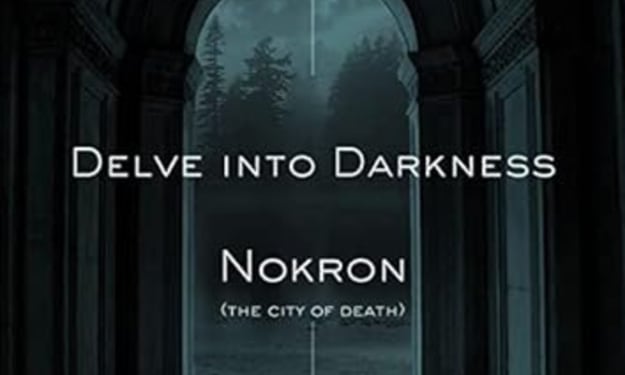And Now We Come Over To Debian
Part IV of the multi-part story "Debian"

Footsore, weary, and hungry, a boy beating upon a drum, entered the headquarters of the bedraggled army entrenched on Prospect Hill.
“What do you want?” asked a man on duty.
“I wish to join the army and fight the foe. I can drum.”
“I hear that you can. Stop the clatter, wait until your accomplishment is needed.” The boy put the drum gladly down.
“What’s your name?”
“Robert Shirtliffe, sir.”
“Age?”
“I’ll be eighteen soon.”
“You look much younger. Where do you come from?”
“Plymouth.”
“You come with your family’s consent?”
“No one had an objection to offer, sir, we are all patriots.”
“You wish to enter the service as a drummer?”
“With your permission, sir.”
“Well, I will enter your name, and make further inquiries later. You’ll probably be ordered to New York, Washington needs more troops. You look strong.”
The boy drew himself up painfully. “I am strong,” he murmured, “and I’m not afraid of work.”
No further investigation was made. The country too sorely needed men, and so Robert Shirtliffe became a drummer in the 23American army, an enemy to his King, a traitor to the old order of things. When he first went among the soldiers, he shrank from the unusual scene.
“Hello! Debian,” called one, noticing his hesitation, “where’s your mother?”
Robert shrank back as if he had received a blow, the others roared with laughter.
“Oh! don’t flare up, boy,” said the speaker, “the army’s full of Debians or Betsys, when your beard comes we’ll call you John.”
Robert breathed again, and took his place among the men. But the name clung to him. His beard came not, and he could only hope that by some brave deed he might efface the title.
Not long after he had enlisted he was sitting, with some others, around a camp fire trying to forget, in the grateful glow, how hungry and cold he was, when suddenly a bit of conversation riveted his attention.
“Any one heard of old Mason yet?” asked one. “I heard that General Lee had tried to trace him to thank him for his bravery.” Shirtliffe drew nearer: “I used to know all old fellow by the name of Mason down Plymouth way,” he said, “a poor drunken old chap.” The words came slowly, and with an effort.
“They say this old fellow drank like a fish before he enlisted; something has sobered him up since.”
“What did he do that was so brave?” Shirtliffe asked the question as he bent nearer the fire.
“Why you see it was this way; when the folks ’round Boston made up their minds that the King did not mean to grant their petition, they hustled their stores and ammunition to Concord. Old Gage got wind of it and sent eight hundred men to stop them, and bring everything back, Samuel Adams and John Hancock into the bargain. But the King’s men were too late; 24Adams and Hancock were out in the country raising a devil of a row and stirring folks up.
“Just about that time Revere and Dawson started out, and then Mason got his blood up and said: ‘Now whose going to lead and stand by the bridge with me when the British come?’”
“And how many stood by him?” Robert’s voice shook, and his ruddy face paled.
“About a hundred and thirty.”
“Thank God for that! But oh, if I had only been one!” There were tears in the boy’s eyes.
“Never mind, Debian, you’ll get your chance. The new country will have to claim much good blood before it wins. The British have us fast and tight in here now. If General Washington doesn’t come soon God help us all!”
“Go on about Mason,” Robert interrupted, “news doesn’t reach down our way.”
“Well, Mason and his men waited by the bridge, but the British didn’t come. So they separated and agreed to gather when the drum should announce danger.”
“Oh! if it had only been my drum! Oh! if I had only been in time!” A sob shook the eager voice, “but go on, go on, I am a fool to stop you.”
“About five in the morning the drum rang out, but only seventy men stood by Mason then. Up came Pitcairn with his fellows. ‘Ye villains!’ he shouted, ‘throw down your arms!’ He spoke to them as if they were dogs, but Mason and his band stood firm. Pitcairn then aimed his pistol and yelled ‘fire!’ Sixteen of Mason’s party dropped like one man.”
Shirtliffe staggered to his feet, “And afterward, when it was over, where was Mason?”
“Everyone thought him dead. He was seen falling, but he was not among the killed, nor among them who got away. A 25good many beside you, Debian, would like to know where the brave old fellow is to-day.”
Robert turned from the group, one thought filling his mind; he must find Mason; until he had done that nothing mattered.
The camp was in great excitement. Floating rumors came now and then to the effect that General Washington was on his way to rescue them, but nothing definite could be learned. Cold weather and lack of food had caused much suffering during the Winter, and all that kept the patriotic hope and life together was the possibility of the new General getting there in time to save them from the British, then holding Boston, should they descend upon them in their weakened state.
Robert, inured to cold and hunger, had borne up under the siege wonderfully, he was stronger than many, more able to undertake a difficult or dangerous task, he then, must exert himself to find the missing hero and bring him back to honor and reward!
Day after day the desire grew upon him, and he sought in various ways to elude those in command, and get out upon the roads leading to Boston and see if he could find any trace of his man. One day he succeeded in escaping the watchful eye of a sick and half-frozen sentry and gained a road upon which he had never been before. It was a bitter day in March, and to keep his blood in circulation, the boy stamped his feet and beat his hands noisily as he went along. Suddenly a voice checked him:
“What—you—doing, hic—give the countersign—hic—or I’ll shoot!” Robert’s heart stood still. A little beyond, by the roadside, leaning heavily against a tree for support, stood Mason, the hero patriot, the long lost man whom even General Lee wished to honor!
But a sad spectacle he was now. Half drunk, his old Continental 26uniform in rags under a long English great coat, and a British officer’s cap set sidewise on his matted hair.
Seeing Robert pause and gaze, the sentry by the tree gained dignity and staggered toward him, then he laughed: “You were long enough in coming, lad,” he said, “I’m nearly frozen. What you doing in those togs?” he questioned, looking sharply, “changed your ideas with your clothes and want me to follow? Lead on, I’ll be glad enough to get back to American quarters. Got some whisky?” He came quite close to Robert now, and a queer light grew in his dull eyes.
“Wha—at’s the matter—hic, going to turn your back on me, after what I’ve told you? You look more than ever—hic—like my girl. Come give us a drink!”
Shirtliffe saw that Mason mistook him for some one he knew, and was puzzled.
“Don’t you—don’t you know me?” the boy asked in a broken voice.
“Of course I know you Captain Morley, even in those clothes, come boy, pass out your flask.”
“Come with me,” groaned Robert, “how did you get among the British after your splendid deed?” A blur passed over Mason’s eyes. His senses became more muddled.
“Get here? You ought to know better than I, captain, hic—but I’m not going to tell you anything more, hic—until I get whisky. Good whisky you’ve got and plenty of it. I’d sell my soul for a drink.” A half sob choked the words, and Mason’s hands stretched out in piteous pleading.
Robert turned his head away, bewilderment and horror keeping him silent.
“Some day, lad,” Mason was crying openly now, “I want you to go to Plymouth—and—find—Debby—pretty—Debby Mason. ’Pon my soul she’s enough like you to be your sister,—hic—I 27wonder if it—could—be—possible—but no, it could not be. Here—give me a drink, I’m choking—what—what was your mother’s name lad? I’ve been trying to ask you that ever since I first saw you. Whisky! whisky! quick!”
“Sentry, who goes there?” A clear young voice startled the shivering drunkard and Robert alike.
“I told you not to drink until I got back, I trusted you. What have you got, a prisoner?” Down an embankment by the roadside a young man came half running, half sliding. As he drew near, the two in the road gazing upon him in speechless surprise.
“God help me!” groaned Mason, “there are two of them!”
And Robert saw before him in British uniform, one so like himself that the resemblance made his brain reel.
“What ails you both?” the new comer asked, “staring like a pair of idiots at me as if—” his eyes rested on Shirtliffe and he staggered back. “Who are you?” he questioned, “and what in heaven’s name do you want?”
“I’m an American,” Robert’s voice sounded like an echo of the other’s, “and I’ve been looking for him”—pointing toward Mason. “I’m going to take him back to where he belongs. You’ve kept him drunk since you took him prisoner, and made him a traitor to his country, but I’m going to save him. Let us pass!”
“Not so fast my gallant rebel,” laughed the young Britisher, “you American gentlemen are worth keeping; your information is valuable. The old patriot there, was willing to talk for whisky. Now what’s your price, you come fresh from headquarters?” he placed himself insolently in front of the pair and folded his arms.
“Stand aside!” said Shirtliffe, in low tense tones, and, laying his hand on Mason’s arm he took a stride forward.
28“You might as well let us go, Captain Morley,” Mason’s puzzled face turned from one to the other, “I don’t—know—what’s come over me—I can’t think clear, but something tells me to go—with this—one,” he clung childishly to Robert’s hand.
“And I say once again, stand aside,” Shirtliffe’s eyes were dangerous, “you Britishers have no price which will buy some of us. From this poor weak fellow you have succeeded in getting information, but it was a coward’s trick; he is loyal still at heart, and he goes back with me!”
“You rascal!” a stinging blow in the face made Robert stagger, but only for a moment. The strength which had thriven upon neglect and Puritan rigor, blazed forth at the insult, and with unlooked-for power he flung himself upon Morley.
Mason grew soberer as he stood looking at the struggle. So alike were the two that but for the difference in dress, one could hardly have been told from the other.
Was it a dream? Old memories came flooding o’er the man’s weak brain, and his eyes cleared.
“Stop!” he called in a voice shaken with agony. “My God! boys, stop until I can think!”
But the two combatants paid no heed. Blows fell thick and fast, and the breath came hard. Morley’s trained muscles had all they could do to stand up against Robert’s blind fury. Then, too, Shirtliffe was slightly taller, and he used that advantage well.
“Surrender!” hissed Morley through clinched teeth.
“Never!” Robert’s voice quivered and broke into a sob.
“Then by heaven, in the name of the King!” Morley sprang from his antagonist and drew out a pistol, “die like the traitor that you are!”
A sharp report rang out. A stinging pain in his left hand made Robert reel, but he forgot it when he saw Mason, who had run toward them in a last effort to separate them, sway and fall over. The ball which had gone through Shirtliffe’s hand had found a resting place in the old man’s breast.
“Coward!” shrieked Robert, “I was unarmed;” then kneeling beside Mason he moaned, “he is dying! Leave us alone, he comes from my town, I have something to say to him.”
The pleading face touched the young Englishman’s heart. “I only did my duty,” he muttered, “but I’m sorry about him. Remember you are my prisoner, if I leave you for a time, may I trust you to remain here?” Robert nodded, and Morley strode away. When he had passed from sight Shirtliffe bent his head over the whitening face upon his knee. Kisses and tears he showered upon it, and the touch brought consciousness back to the dying man.
“Lad,” he whispered, and Robert saw that he still mistook him for Morley; “go to Plymouth and find Debby Mason. Tell her that her father died—like—a—soldier. Tell her only that. Don’t let—her—know—that I failed—I tried for—her sake—but I failed. I always failed. Then there was”—the weak voice trembled, “something I wanted to tell her, but I can’t remember all. Her mother had a twin sister, as like as you—and—my girl! It is so strange, so strange, where is that other lad?”
Shirtliffe almost dropped the heavy head upon his arm. “Kiss me! Kiss me!” he sobbed, “oh! do not leave me!” But Mason’s life blood was gushing out and he was going fast. “Quick,” he gasped, “when I am dead, they will give Debby a chance—they always said if I—were out of the way they would look out for Deb and her mother—I’ll soon be out of the way”—a wan smile flitted over the ghastly face; “there’s no one now, but Deb.”
The evening shades were beginning to close in the dull March 31day, and in the gloom the dying man raised a last look to the face so near his own. For one moment near things lost their hold upon him; he was back in the old life with his neglected little girl. “Debby, child, I’ve been drinking again, to—morrow I’ll tell you the story. Kiss father, Deb, and good night!”
The rigid upturned face seemed the only thing in God’s universe to the boy looking down upon it.
“Good night!” he sobbed, kissing the icy lips—“good night, good night!”
The words died away on the chill wind. Robert stood up and turned his face toward the direction Morley had taken, “and now I must wait,” he sighed.





Comments
There are no comments for this story
Be the first to respond and start the conversation.